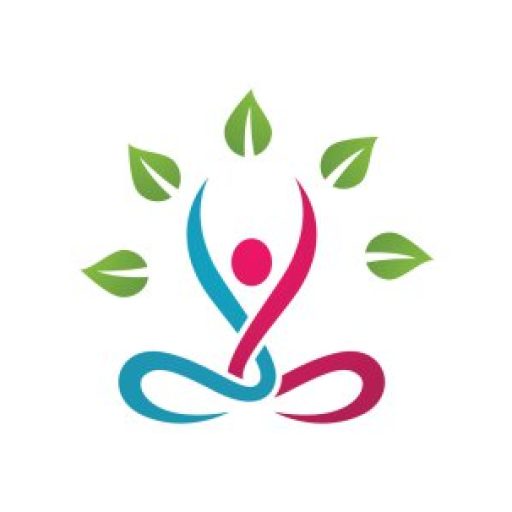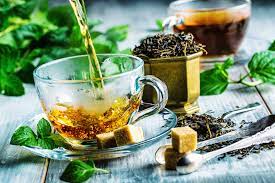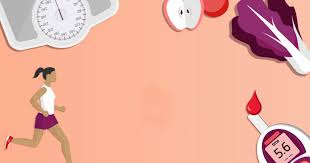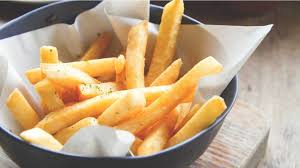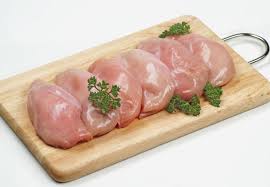Content of the Article
High blood pressure is triggered by our daily activities such as overeating, consuming too much salt, stress, smoking, drinking alcohol. High blood pressure, also called hypertension, is a disease with high rates in our country and in the world. It is estimated that one out of every three people has hypertension. The high rate shows the seriousness of the situation. So what is good for high blood pressure?
The things that are good for high blood pressure are actually hidden in our lifestyle. The way to lower blood pressure is to get rid of our unhealthy habits. Now let's talk about all the details that need to be known about high blood pressure.

What is hypertension?
High blood pressure occurs as a result of applying excessive force to the walls of the vessels through which blood passes. It is necessary to keep blood pressure under control to prevent complications such as stroke, kidney disease, vision loss and heart failure.
Types of hypertension
There are mainly two types of hypertension;
- Primary Hypertension The cause of this type of hypertension is unknown. Primary hypertension is diagnosed when blood pressure is high more than three times in a row and no cause can be found.
- Secondary Hypertension – If hypertension is caused by an abnormality in the arteries or a blockage in the airways during sleep, it is secondary hypertension.
Blood pressure is recorded according to two figures. The first is the systolic blood pressure applied while the heart is beating (high blood pressure in the popular sense). The second is diastolic blood pressure (diastolic blood pressure), which is applied when the heart is at rest between beats.
Hypertension is divided into several types:
- Isolated Systolic Hypertension. Normal blood pressure is usually less than 120/80. In people with isolated systolic hypertension, the systolic pressure rises above 140, while the diastolic pressure remains in the normal range (below 90). Isolated systolic hypertension is common in the elderly over 65 years of age.
- Malignant Hypertension. This is a very rare type of hypertension. This type is usually seen in young people and women with pregnancy toxemia. Malignant hypertension manifests when blood pressure rises suddenly and too quickly. It is a condition that requires immediate medical attention.
- Resistant Hypertension. If the antihypertensive drugs recommended by the doctor do not work, there may be resistant hypertension.
Some types of hypertension occur with seizures. It happens for a while and then it subsides on its own. These are white coat hypertension and unstable hypertension.

What causes high blood pressure?
High blood pressure is caused by:
- obstructive sleep apnea
- Kidney disease
- Adrenal gland tumors
- Thyroid problems
- Some congenital defects in blood vessels
- Birth control pills, cold medicines, decongestants, over-the-counter pain relievers, and some prescription medications
- Illegal drug use, such as cocaine and amphetamines
Risk factors for high blood pressure
Our heart pumps blood throughout our body. This pumping action creates a pressure that is normal in the arteries. However, in people with high blood pressure, this pressure is more severe. While the exact cause of this increase in pressure has yet to be determined, several factors are thought to be responsible for the condition:
- Age – The elderly are at higher risk of developing high blood pressure.
- Genetics – Those with a family or relative with hypertension have a higher risk of developing the condition.
- Heat - Blood pressure increases in cold climates (due to narrowing of the arteries) and decreases in warm climates.
- Ethnicity - Those of African or South Asian descent have a higher risk of developing high blood pressure.
- Obesity - People who are overweight are at risk of developing high blood pressure.
- Gender - In general, high blood pressure is more common in men than women.
- Inactivity – A sedentary lifestyle puts a person at risk of developing high blood pressure.
- To smoke
- drinking too much alcohol
- consuming high amounts of salt
- Eating high in fat
- Stress
- Conditions such as diabetes and psoriasis
- Pregnancy
High blood pressure symptoms
Most people who experience high blood pressure do not show any major symptoms. Therefore, high blood pressure silent killer disease It called. What are impacted teeth? When one or more teeth fails to grow in the correct position and is therefore held below the normal gum line, it is called an impaction. This can be complete, such as completely unerrupted (buried) third molars (wisdom teeth) or partial when just part of the tooth is visible in the mouth. Why are impactions important? For best function and appearance the teeth should grow in a healthy alignment. When one or more teeth is impacted, this can affect the function of that tooth but also the function and appearance of other teeth. Whether all impactions should be treated is still controversial and your dentist and oral and maxillofacial team can explain the advantages and disadvantages or treatment for you, which is usually surgical. Symptoms begin to show when blood pressure reaches 180/110 mmHg. Symptoms that may occur at this stage include:
- Headache
- nausea or vomiting
- Dizziness
- Palpitation
- Shortness of breath
- double or blurred vision
- Nose bleeding
If you experience such symptoms, consult a doctor immediately.

How is high blood pressure diagnosed?
Blood pressure is usually measured by two values – systolic pressure (applied when the heart contracts) and diastolic pressure (applied between each heartbeat). Blood pressure is measured with a sphygmomanometer, and as a result, a diagnosis of high blood pressure is made. Other tests that can help diagnose high blood pressure include:
- Urine and blood tests
- Exercise stress test
- Electrocardiogram or EKG test – Tests the electrical activity of the heart.
- Echocardiogram - Uses ultrasound waves to detect the movement of the heart.
blood pressure chart
- 90/60 mmHg – Low blood pressure
- More than 90/60 mmHg but less than 120/80 mmHg – Normal blood pressure
- More than 120/80 mmHg but less than 140/90 mmHg – Blood pressure is near normal but slightly higher than ideal.
- 140/90 mmHg or higher – High blood pressure
Based on these values, the following conclusions are reached:
- If the systolic pressure is above 140, you may have high blood pressure.
- If the diastolic pressure is 90 or more, you may have high blood pressure.
- If the systolic pressure is 90 or less, the blood pressure is low.
- If the diastolic pressure is 60 or less, the blood pressure is low.

High blood pressure treatment
The most common medications prescribed for high blood pressure are:
- Angiotensin converting enzyme (ACE) inhibitors
- Calcium channel blockers
- Thiazide diuretics
- Beta blockers
- Renin inhibitors
Along with these drugs, the doctor will ask the person to pay attention to their lifestyle:
- eat less salt
- Exercising regularly
- Losing weight for those who are overweight
- It's like limiting the amount of alcohol you drink.
How to lower blood pressure?
Lifestyle is the most important factor in the treatment of blood pressure and prevention of high blood pressure. Some changes you will make will help to cope with the blood pressure problem.
- Eat healthy foods. Fruit, vegetables, whole grains, poultry, fish, and low-fat dairy are healthy foods. Consume less saturated fat and trans fat.
- Reduce the salt. Consume 2.300 milligrams or less of salt per day.
- Get enough potassium. Foods high in potassium include bananas, avocados, and potatoes.
- Keep your weight in the healthy range and maintain it. Those who are overweight can keep high blood pressure under control by losing weight, and those who are healthy can maintain their weight.
- Exercise. Regular physical activity helps lower blood pressure, reduce stress, control weight and reduce the risk of many health problems, such as high blood pressure.
- Limit alcohol. Even in healthy people, alcohol raises blood pressure. It is best to avoid alcohol in moderation or even completely.
- Do not smoke. Tobacco can damage blood vessel walls and speed up the process of plaque formation in the arteries. If you smoke, quit.
- Reduce stress. Regular physical activity, plenty of sleep and breathing techniques will help reduce stress.
High Blood Pressure Reduction Methods
- Don't add extra salt to your food or stay away from foods that contain high levels of sodium.
- Avoid processed foods such as salami, sausages, and frozen convenience foods because they contain a lot of salt.
- Do not consume pickles as they are loaded with salt.
- Consume fresh and healthy foods that will help reduce overall body weight, improve blood lipid profile and lower high blood pressure.
- Stay away from negative thoughts that will trigger unhealthy emotions.
- Engage in the things you love, such as reading, painting, taking pictures, cooking, that will make you feel good and distract you from bad thoughts.
- Stay away from alcohol.
- Exercise regularly, as it has many health benefits, such as managing stress.
- If you are overweight, lose weight. Being overweight triggers high blood pressure.
- Consume red meat in limited quantities.
- Monitor blood pressure regularly. If you have a family history of high blood pressure or are aware that you are hypertensive, monitor your blood pressure regularly.

What is good for high blood pressure?
The diet and exercise combo is most effective for lowering high blood pressure. There are also natural treatments that can potentially be beneficial, which can be applied at home. You can try the following herbal methods to lower blood pressure.
- Ginger
Add 1 or 2 pieces of ginger to a glass of water. Boil in a saucepan. After boiling for about 5 minutes, strain. Wait for the ginger tea to cool before drinking it. You can drink this tea twice a day.
Gingerhelps to reduce the force and speed of contraction of the heart. It also has a blood pressure lowering effect.
- Garlic
Chew and swallow one to two cloves of garlic daily. If the taste does not suit your taste, you can mix the garlic with honey and eat it that way. Garlichelps to lower high blood pressure.
- vitamins
B vitamins and Vitamin DIt has a high blood pressure lowering effect. Foods such as whole grains, eggs, dairy products, meat, legumes, dark green leafy vegetables and oily fish are rich in these vitamins.
- Apple cider vinegar
Add three teaspoons of raw apple cider vinegar to a glass of warm water and mix. for the mix. You can drink this once a day.
Apple cider vinegarIt reduces the activity of an enzyme called renin, which contributes to high blood pressure.
-
Beet juice
Squeeze up to two glasses of fresh beet juice and drink it at two different times during the day. Beet juiceThe inorganic nitrates in it have the feature of lowering high blood pressure.
- Lemon juice
Squeeze the juice of half a lemon into a glass of warm water. Mix well and drink. You can drink water with lemon once a day. Along with regular physical exercise drink lemon juice lowers systolic blood pressure.
- Carbonate
Mix half a teaspoon of baking soda into a glass of water. for the mix. Keep drinking this once a day for a week. If you experience any side effects, stop drinking and consult a doctor.
Long-term use of it has the opposite effect and raises blood pressure, if used for a short time, it has a blood pressure lowering effect.
- Green tea
Add half a teaspoon of green tea to a glass of hot water. Steep for 2 to 4 minutes and then strain. Drink the hot tea slowly. You can drink green tea twice a day.
drink in moderation green teaallows the arteries to relax. Green tea has a positive effect on lowering high blood pressure thanks to the polyphenols it contains.
Attention!!!
Do not drink too much green tea, as its caffeine content can raise blood pressure.
-
Omega 3 fatty acids
Consume 250-500 mg of omega 3 fatty acids daily. Eat foods rich in omega 3 like fatty fish, flaxseed, walnuts and chia seeds. You can also take nutritional supplements after consulting your doctor.
Omega 3 fatty acidsIt exerts cardioprotective effects through the presence of two long-chain essential fatty acids – docosahexaenoic acid (DHA) and eicosapentaenoic acid (EPA). DHA helps lower blood pressure and heart rate.

Foods That Lower Blood Pressure
One of the causes of high blood pressure is an unhealthy diet. Therefore, when blood pressure rises, we should be careful about what we eat. Foods that lower blood pressure include:
- Green leafy vegetables
Green leafy vegetablesPotassium, which is the main cause of high blood pressure, helps to remove sodium from the body. Thus, blood pressure drops.
- Skim milk and yogurt
Skim milk and yoghurtlowers blood pressure. Because it is a source of calcium and potassium. Both calcium and potassium help remove sodium from the body.
- Berry fruits
Berries are very powerful antihypertensive foods. It contains important nutrients such as vitamin C, polyphenols, dietary fiber and anthocyanin. Drinking the juice of these fruits lowers blood pressure.
- Rolled oats
Oat It is a great food for weight loss as it helps to lower the lipid level in the blood. This has a positive effect on high blood pressure.
-
Fatty fish
Salmon, mackerel and fatty fish, such as tuna, are sources of vitamin D along with omega 3 fatty acids. Studies have shown that those who consume oily fish lose weight and lower systolic and diastolic blood pressure. Take care to consume 3-4 servings of fatty fish per week.
- Beet
Beetcontains nitric oxide, which helps dilate blood vessels, thereby lowering blood pressure.
- Vitamin C rich fruits
Fruits rich in vitamin C such as grapes, oranges, grapefruits, kiwis, lemons help lower blood pressure.
- Dark chocolate
Dark chocolateIt is an effective food in lowering blood pressure as it is a great source of flavonols.
- Banana
Banana It is a great source of potassium. Potassium lowers blood pressure by helping eliminate sodium from the body.
- Seeds
Pumpkin seedsSeeds such as sunflower seeds, chia seeds, and flaxseed are great sources of fiber, as well as healthy fats, vitamins, and minerals. Along with helping to lose weight, they also help lower high blood pressure.
-
Pistachio nuts
Pistachio nutsWhen consumed in limited quantities, it helps to lose weight and lowers lipid levels in the blood.
- Pomegranate
PomegranateContains antioxidants, vitamins, minerals and fiber. Researchers have found that drinking pomegranate juice helps lower systolic blood pressure. 1-2 glasses of pomegranate juice can be consumed every other day.
- Olive oil
Olive oilThe polyphenols in it are effective in lowering high blood pressure. Scientific studies have shown that olive oil consumption helps lower bad cholesterol and systolic blood pressure in the elderly and young women.
- Avokado
AvokadoIt is a potential antihypertensive fruit. It is rich in fiber, healthy fats, vitamins and minerals. Monounsaturated fats in avocado reduce vascular resistance, potassium and magnesium help remove excess sodium from the body. Eating half an avocado a day will be beneficial for lowering and controlling blood pressure and improving overall health.
- Beans and lentils
Beans ve lentilIt is rich in nutrients that help regulate blood pressure, such as fiber, magnesium, and potassium. In this way, it helps to lower high blood pressure.
- Carrot
Carrotchlorogenic, which helps relax blood vessels and reduce inflammation, p It is high in phenolic compounds such as coumaric and caffeic acids. Therefore, it lowers blood pressure.
-
Celery
CeleryIt is a vegetable that can have positive effects on blood pressure. It contains compounds called phthalides that can help relax blood vessels and lower blood pressure levels.
- Tomato
TomatoContains potassium and lycopene. Lycopene is beneficial for heart health and lowers high blood pressure.
- Broccoli
BroccoliContains flavonoid antioxidants that lower blood pressure by improving blood vessel function and increasing nitric oxide levels in the body.
Herbs That Lower Blood Pressure

- Basil
Basil, It is rich in various powerful compounds. Sweet basil is high in eugenol. This plant-based antioxidant is effective in lowering blood pressure.
- Parsley
Parsley It contains various compounds such as vitamin C and dietary carotenoids that lower blood pressure. Carotenoid antioxidants lower blood pressure as well as cholesterol.
- Celery seed
Celery seeds contain several nutrients such as iron, magnesium, manganese, calcium and fiber. It is one of the herbs that lowers blood pressure.
- bacopa monnieri
bacopa monnieriIt is a plant that grows in swampy areas in South Asia. It helps lower both systolic and diastolic blood pressure by stimulating the blood vessels to release nitric oxide.
- Garlic
GarlicIt is rich in many compounds that are beneficial to the heart. In particular, it contains sulfur compounds such as allicin that can help increase blood flow and relax blood vessels. With this feature, it helps to lower blood pressure.
-
Thyme
ThymeContains rosmarinic acid compound. Rosmarinic acid reduces inflammation, stabilizes blood sugar levels. It also lowers blood pressure.
- Cinnamon
CinnamonIt is an aromatic spice obtained from the inner bark of Cinnamomum trees. Animal research suggests it may help dilate and relax blood vessels. This lowers high blood pressure.
- Ginger
Ginger It has been used for centuries to improve many aspects of heart health, such as circulation, cholesterol levels, and blood pressure. It reduces high blood pressure as it acts as a natural calcium channel blocker and natural ACE inhibitor.
- Cardamom
Cardamomcontains a variety of antioxidants that may help lower blood pressure.
What should hypertension patients not eat?
There are foods that blood pressure patients should eat, as well as foods that should be avoided;
- Deli meats
- Sugary foods
- Canned or packaged food
- Junk food
- Excessive alcohol
- excessive caffeine

Hypertension complications
When high blood pressure puts excessive pressure on the artery walls, it can damage blood vessels and organs. The higher and uncontrolled the blood pressure, the greater the damage. Uncontrolled high blood pressure leads to complications such as:
- Heart attack or stroke. High blood pressure causes hardening and thickening of the arteries (atherosclerosis). This can lead to a heart attack, stroke, or other complications.
- Aneurysm. Increased blood pressure can cause blood vessels to weaken and swell, creating an aneurysm. If the aneurysm ruptures, a life-threatening situation occurs.
- Heart failure. Against the high pressure in the veins, the heart has to work harder to pump blood. This causes the walls of the heart's pumping chamber to thicken. The thickened muscle has difficulty pumping enough blood to meet the body's needs, leading to heart failure.
- Narrowing and weakening of blood vessels in the kidneys. It can prevent organs from functioning normally.
- Thickening, narrowing, or rupture of blood vessels in the eyes. It can cause vision loss.
- metabolic syndrome. Metabolic syndrome is a group of disorders in the body's metabolism, such as increased waist size, high triglycerides, low levels of good cholesterol, high blood pressure and elevated insulin levels. These conditions increase the risk of developing diabetes, heart disease, and stroke.
- Problems with memory. Uncontrolled high blood pressure affects the ability to think, remember, and learn.
- dementia. Narrowing and blockage of arteries can limit blood flow to the brain, leading to vascular dementia.
To summarize;
High blood pressure is caused by the blood exerting excessive pressure on the walls of the vessels. Sleep apnea, kidney disease, thyroid problems, the use of certain medications, drinking alcohol, smoking and stress cause high blood pressure.
Headache, nausea or vomiting, dizziness, palpitations, shortness of breath, blurred vision, nosebleeds are symptoms of high blood pressure.
High blood pressure is a serious health problem. It triggers many ailments. Therefore, when you notice the symptoms, be sure to see a doctor. If necessary, the doctor will prescribe blood pressure lowering drugs. In cases where there is no need for medication, high blood pressure decreases with lifestyle changes.
Nutrition is the most important factor in lowering high blood pressure. Make sure to exercise along with a healthy diet. Lose weight. Reduce salt consumption. Also, avoid stress.
